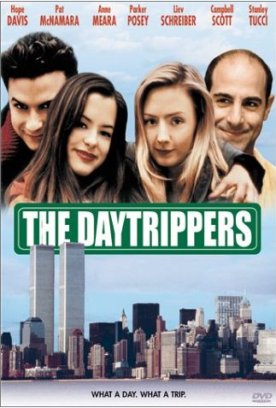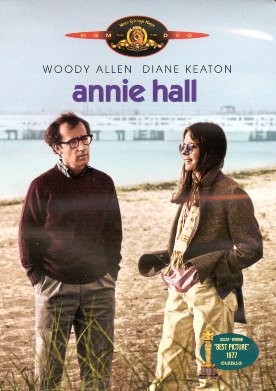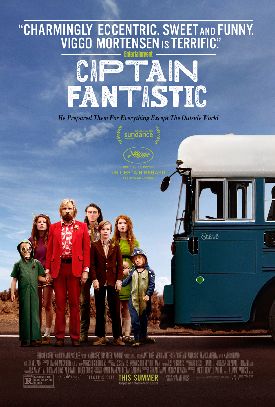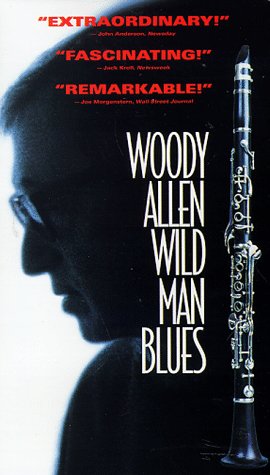Daytrippers, The
The Daytrippers by Greg Mottola is quite a pleasant little film. An actor’s film. There are excellent performances from Liev Schreiber, Parker Posey, Anne Meara, Hope Davis, Campbell Scott, and Pat McNamara especially, but credit must also be given to Mr. Mottola, a young man just out of film school who conceived such good parts for them.
In its conception it is what we might call a monster-mom movie. Miss Meara plays Rita Malone, mother of two daughters, Eliza (Miss Davis) and Jo (Miss Posey). Eliza is married to Louis (Stanley Tucci), a marketing manager for a publishing company and Jo is going steady with an impecunious young man called Carl (Mr Schreiber) who hopes to be a novelist. Rita dotes on both the young men, often at her daughters’ expense, and we begin gradually to see how this pattern of behavior has diminished both women’s sense of self-worth while binding them more tightly to men who are, in various ways, not quite right for them. Their father, Jim (Mr McNamara) is the long-suffering type who is cowed by his wife but has something of a conspiratorial relationship with his daughters in secretly opposing her.
One morning Eliza finds an ambiguous letter, quoting Andrew Marvell’s “Definition of Love,” which may or may not be a love letter to her husband. Troubled, she drives over to the house where she grew up on Long Island for advice from her parents. Carl, though supposedly a literary man, thinks that Marvell is a predecessor of Shakespeare’s and is not too good at working out what the lines mean. Eliza is for telephoning Louis to ask him to explain, but Rita insists that you have to confront someone in person to be able to tell if he is lying. So she and Eliza and Jim and Jo and Carl all pile into the family station wagon for a drive into the city to find him at his office. On the way, Carl begins telling the family the story of his novel, an allegory about a man with the head of a dog which is meant to satirize middle-class materialism and mediocrity.
From this point on, the film becomes rather a picaresque journey through winter-time Manhattan, intercut with class and sex issues, mostly played for laughs, in the relationships between the people in the car and the absent Louis. Especially funny are Carl’s descriptions of his dreadful-sounding novel. Jo has to explain to her mother that it is “Dr Seuss for adults.” When Carl says that the man is “normal in every way except for the head,” Rita asks: “How would that work?” She also appears to think that it will impress him when she tells him that “Jo loves dogs,” and recounts the story of a childhood pet. Though she doesn’t understand the allegory, she is herself prepared to be impressed in any case. “How do you think these things up?” she asks admiringly.
Carl is too easy a target, a pathetic mediocrity whose own professed dislike of mediocrity leads him to theorize about the establishment of an aristocracy, which will presumably be able to appreciate his talents more than vulgar democracy. So we are introduced to Eddie (Campbell Scott), a real novelist who casually decides to take Jo away from Carl. But Eddie turns out to be just a slightly higher-wattage version of Carl, and the satire of the New York literary scene that he brings with him into the film does not fit very well together with the mounting tensions within the family—though it is funny in its own right. I especially liked the female author of the exquisitely sensitive Gauze—a family memoir of her father, whom she describes as “a cross between Fred MacMurray and Pol Pot.”
In the denouement, Louis is at length found, though not in the company of another woman, and there are surprises for everyone. Not least surprised is the audience, who finds itself smitten with a measure of compassion for everyone but poor old Rita, who is isolated as a foolish, manipulative bitch. I’m not sure it’s the right ending, but it is a pleasure getting to it.
Discover more from James Bowman
Subscribe to get the latest posts to your email.







